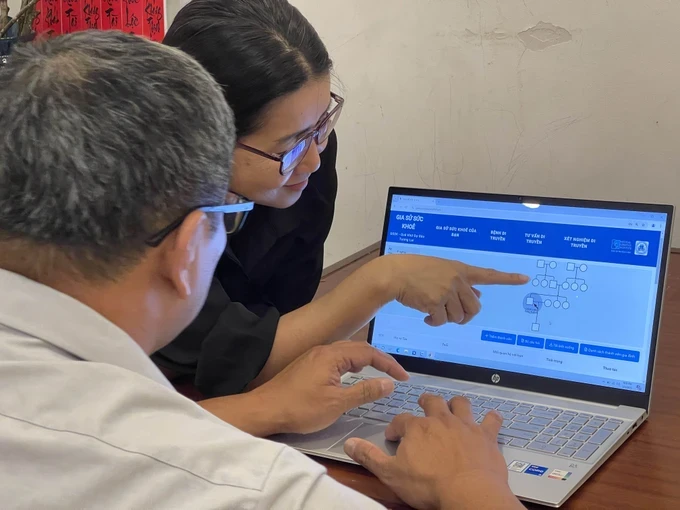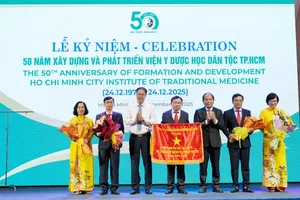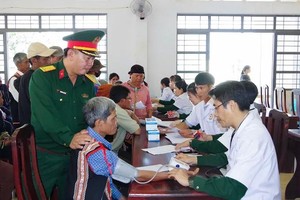
A Family Health History (FHH) constitutes a systematic compilation of health and illness data spanning at least three consecutive generations of a family, represented graphically through a pedigree chart. This instrument serves diverse purposes, including the analysis and quantification of health and disease risks, and provides crucial information for genetic counselors during consultations.
The research team at the Institute of Medical Genetics has engineered a standardized FHH collection tool, initiating its deployment in community-based healthcare and disease prevention. This initiative was undertaken as part of the science and technology (S&T) project, “Research on establishing models and building tools to support community-based FHH collection and use”, which has been successfully evaluated by the HCMC Department of Science and Technology.
Tang Hung Sang, MMed, the project’s principal investigator, shared that this research is based on the imperative to develop FHH applications for the prevention and early diagnosis of hereditary diseases, a foundational step towards precision medicine based on genomics. The project aims to create family-centric FHH tools and establish methodologies for assessing and stratifying familial disease risks.
The research team concentrated on six primary objectives, including enhancing awareness of the significance and practical application of FHHs among family physicians, disseminating FHH knowledge and skills to family representatives, and developing technical guidelines for FHH construction and utilization in disease risk assessment for specific conditions (cancer, cardiovascular diseases, diabetes, Alzheimer's).
The research team compiled 1,660 rigorous FHHs, establishing their pivotal role as the first step in genetic screening, preceding further clinical evaluations. The project successfully developed and piloted FAME pedigree software and FHH quality criteria, enhancing risk assessment for five common cancers.
FAME provides secure, user-friendly online FHH creation, enabling accurate pedigree charting and risk prediction. Individuals identified with increased risk can seamlessly transmit their FHHs to physicians or genetic counselors for comprehensive analysis and tailored guidance. This initiative significantly advances early cancer detection and personalized genetic counseling, making vital information accessible through innovative online platforms, thereby improving preventative healthcare.

Genetic counseling is a multi-faceted process, with FHH construction serving as the initial phase, focusing on the compilation and synthesis of patient-derived FHHs. This is followed by the analysis and assessment of potential genetic diseases, determination of inheritance patterns (dominant, recessive, sex-linked, mitochondrial, multifactorial), and the provision of information regarding disease characteristics and familial transmission risks.
A high-quality, comprehensive FHH, coupled with a coherent pedigree chart, offers numerous benefits, including the determination of inheritance patterns for single-gene and multifactorial diseases prevalent within a family. The identification of at-risk individuals allows for the recommendation of appropriate diagnostic and screening strategies.
The project team also formulated a set of 14 FHH quality criteria, encompassing completeness, clarity, accuracy, pedigree construction, and periodic updating, to facilitate the classification and selection of high-quality FHHs.
To popularize family health histories (FHHs), the team trained 900 students and 345 physicians. The FHH website and software were used for data collection at various clinics, including University Medical Center – HCMC, 30 Thang 4 Hospital, and Children’s Hospital 1, among others. These efforts, according to MMed Tang Hung Sang, aimed to integrate FHHs into routine healthcare practices.
The World Health Organization recognizes the paramount importance of FHHs as a crucial initial assessment tool. In developed nations, FHHs are widely adopted, with 90 percent of Americans understanding their significance and 45 percent of families actively engaging in their creation.
The HCMC Department of Science and Technology Evaluation Council has acknowledged the profound significance of this project, emphasizing that FHHs not only aid in disease identification and its reasons but also facilitate the calculation of familial disease risks and intergenerational transmission probabilities.
Currently, the family health history website (https://giasusuckhoe.vn/login) provides tools for individuals to construct their FHHs, represented as pedigree charts, and incorporate familial disease information, thereby enabling personalized risk assessments.
























